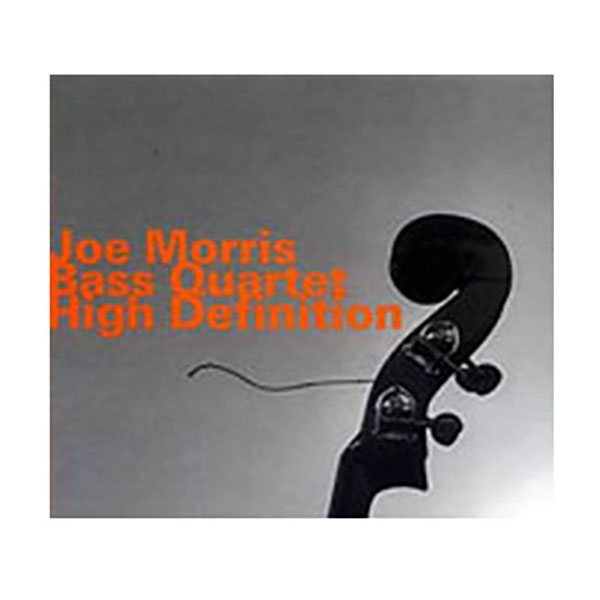
by Tim Owen
March 27, 2009
/ ALBUM
High Definition covers a number of stylistic approaches while achieving a balance of swing and freedom that is close to perfection
Joe Morris (double bass); Taylor Ho Bynum (cornet, trumpet and flugelhorn); Allan Chase (alto, baritone and tenor saxophones); Luther Gray (drums)
At first it’s easy to overlook the virtues of this recording. It appropriates some of the clean, post-bop modes of classic 60s Blue Note artists such as Jackie McLean and Hank Mobley, and splices them with the sense of free-wheeling innovation that has typified the best free jazz, from Albert Ayler and Ornette Coleman through Andrew Hill to the present day. At first the sum of the Bass Quartet’s efforts don’t seem to add up to anything new, but across the six mid-length tracks of High Definition they cover a number of stylistic approaches while achieving a balance of swing and freedom that’s close to perfection.
Skeleton swings along with Morris exhibiting straight away the “bounce” which, in the interview reproduced in the liner notes, he identifies as a key element in the sound of his rhythm partnership with Luther Gray. The piece follows standard lines with horn statements followed by unaccompanied bass and drum solos.
Morning Group, led by Ho Bynum’s bleary trumpet, explores much more digressive territory, though Morris and Grey keep the forward momentum strong and there’s still a strong sense of cohesion even as the horn lines and rhythm players occasionally tumble around each other.
Land Mass has some of the rhythmic qualities of John Zorn’s original Masada quintet at its most swinging and soulfully insouciant, while Topics is fast and nimble, a fairly straightforward piece with an instantly memorable theme. A cool solo from Chase on alto sax leads to an explosively taut drum break from which Ho Bynum hares away at breakneck speed, the group having to apply the brakes at the close to avoid a pileup.
Bearing lessens the tempo, its initially sweet theme explored by soprano sax and flugelhorn, bass and drums rippling beneath a surface which becomes ever more turbid. It’s a brief track, following which the free-bop of All-In-One snaps the bounce right back into place, the group laying out while Morris takes a typically probing solo.
Super Spot is a short, spiralling composition of gathering intensity, with the horns chasing the tail of the theme, breaking off now and then to chew over whatever they’ve bitten off. The title of the closing The Air Is Tight says everything about it’s own first claustrophobic minute, after which comes a brief, crystal-clear moment before some protean noodling, and finally a theme statement that resolves the whole thing beautifully.
Joe Morris’ profile as a recording artist isn’t high, particularly in the UK, but when he does show up it’s usually in an intriguing project. Most recently, he effectively replaced pianist Matthew Shipp in David S. Ware’s latest quartet, having in the past borrowed Ware’s unit for a recording of his own [Elsewhere; Southern, 1996]. As on that date, with Ware Morris plays what has hitherto been, and notionally remains, his primary instrument, the electric guitar. He’s on record as stating that he adopted the bass simply because he didn’t know of anyone who played the instrument in the style he wanted, and on this evidence he has a point. As the confidence implicit in that statement attests, he’s no slouch on the larger instrument; in fact I find his bass work more engaging than his approach to the guitar, and he sounds like no other bassist I’ve heard. Rather than explore the limits of possibility on the bass he has re-examined the basics and come up with a unique and immediately enjoyable focus on its role as a rhythm instrument.
Whenever I’m asked to recommend one Jazz title for a curious new listener, I usually recommend Joe Henderson’s ?Lush Life’ for its exemplary synthesis of certain key strands in the evolution of the music, from Ellington to Henderson’s 60’s heyday, re-examined in the company of some of the most precociously talented of America’s 80’s revivalists. High Definition has the same freshness of execution and a similar blend of authority and penetrating intelligence, but mines other traditions. It would be an ideal companion disc; in fact it would now be my first-choice recommendation.
blog comments powered by Disqus